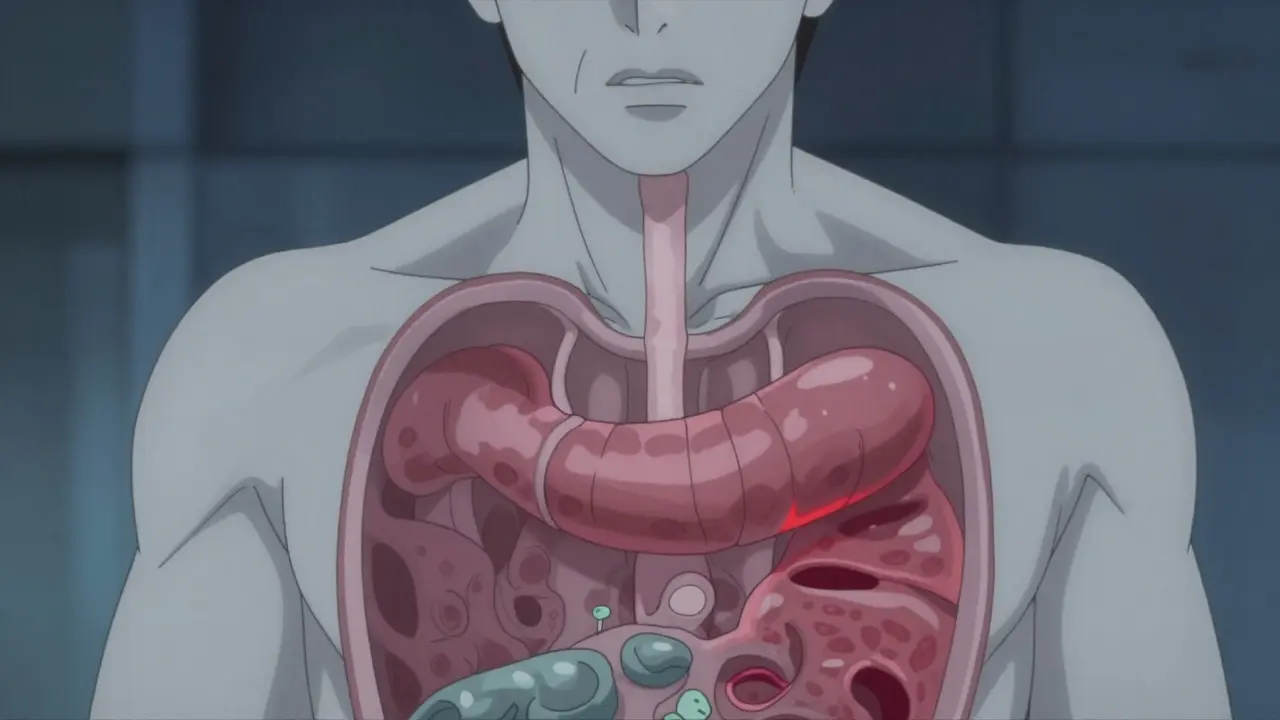GERD: what causes it, how to spot it, and quick steps that help
If you get heartburn more than twice a week, that’s a red flag for GERD (gastroesophageal reflux disease). It’s the chronic form of acid reflux, and it feels worse than an occasional upset stomach. You don’t need drama — just practical steps to feel better and know when to call a doctor.
GERD happens when stomach acid flows back into the esophagus. That backflow irritates the lining and causes the classic burning in the chest. Other common signs are regurgitation (sour or bitter fluid in your mouth), a chronic cough, hoarseness, trouble swallowing, or a lump-in-the-throat feeling. Some people only notice bloating or belching after meals.
Everyday fixes that actually help
Start with things you can change right now: eat smaller meals, avoid lying down for 2–3 hours after eating, and sleep with your head raised about 6 inches. Lose a little weight if you’re carrying extra pounds — even a small drop can cut reflux episodes. Stop smoking and cut back on alcohol. Both weaken the valve between your stomach and esophagus.
Food-wise, watch triggers: tomato products, citrus, chocolate, peppermint, fried or fatty foods, spicy dishes, and large servings of caffeine. Try plain swaps — grilled chicken instead of fried, oatmeal instead of a greasy breakfast — and keep a short food log for a week to spot personal triggers. Chewing sugar-free gum for 20 minutes after a meal can help by increasing saliva and clearing acid faster.
Medicines and when to pick them
For quick relief, antacids (Tums, Maalox) work well. H2 blockers like famotidine calm acid production for several hours. Proton pump inhibitors (PPIs) — omeprazole, esomeprazole, lansoprazole — are the go-to for chronic GERD because they block acid longer and help healing. If you’re thinking about long-term PPI use, talk to your doctor about risks and the right dose. Our article “Prilosec vs Omeprazole” goes into differences and mixing PPIs with alcohol.
If lifestyle changes and over-the-counter meds don’t control symptoms, see a clinician. Warning signs that need fast attention include unintentional weight loss, vomiting blood or black stools, and severe trouble swallowing. Your provider may suggest tests like endoscopy or pH monitoring to check damage and guide treatment.
Small steps add up. Tweak meals, change a few habits, and use the right medicine for the short term. If you’re unsure what’s triggering your reflux or your symptoms stick around, get checked — catching problems early keeps treatments simple and effective.
Want more reading? Check our pieces on Prilosec vs omeprazole and on how common meds affect post-meal bloating for practical details and safety tips.


